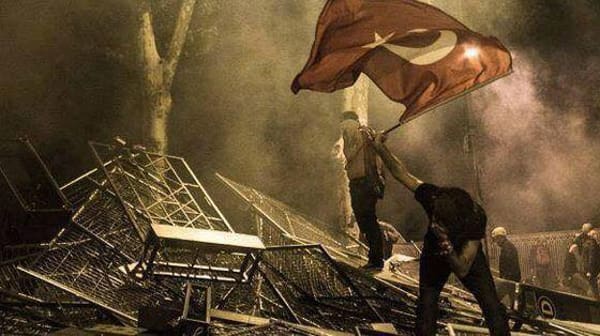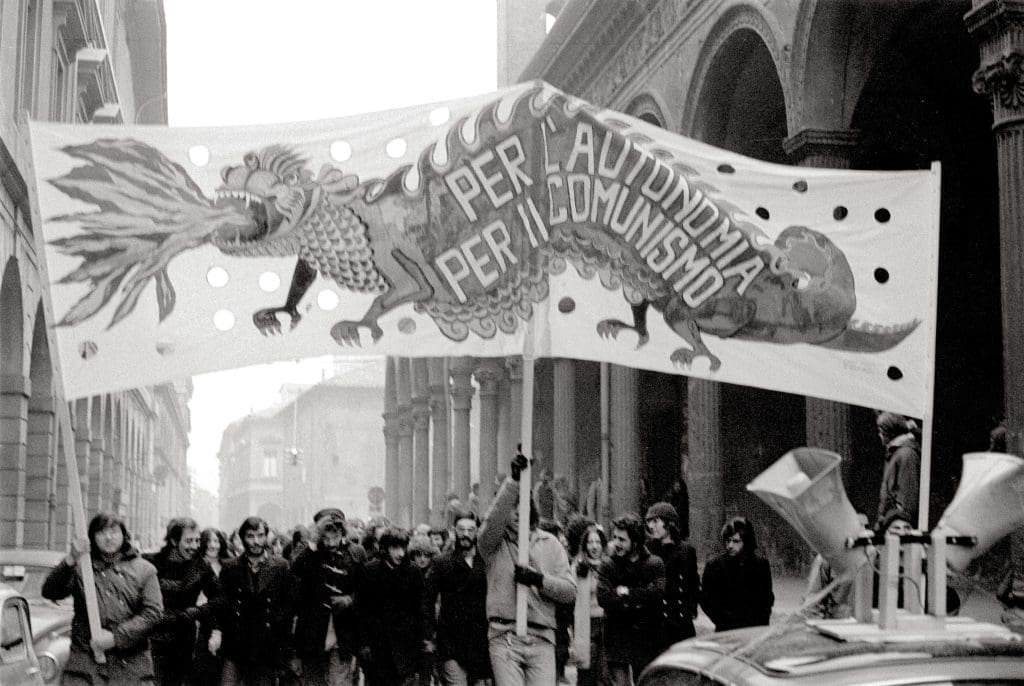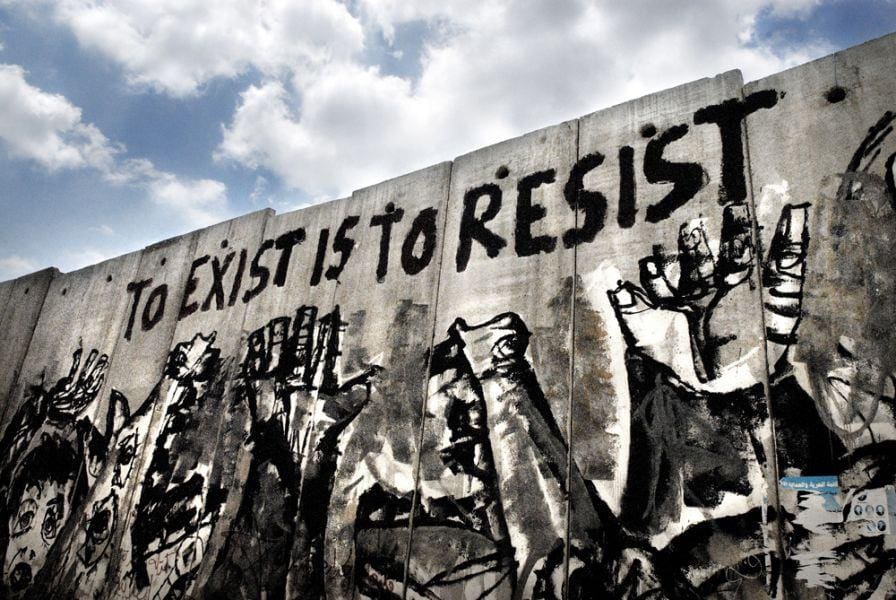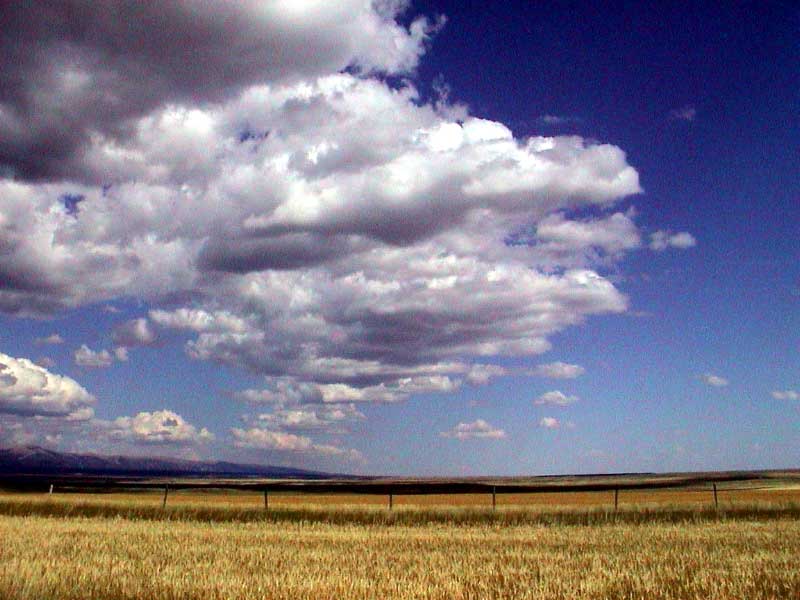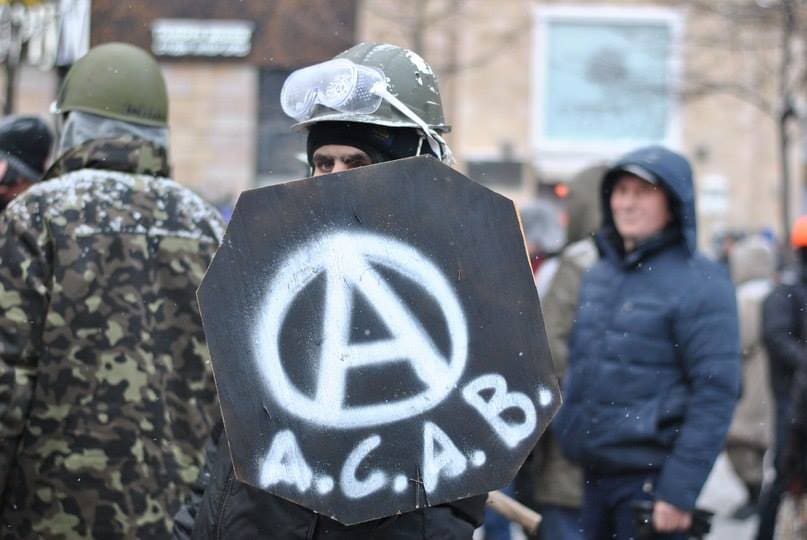Transcribed from the 23 July 2016 episode of This is Hell! Radio and printed with permission. Edited for space and readability. Listen to the whole interview:
Let’s not forget that the Turkish army is the second-largest NATO army in terms of personnel. It’s hard to believe that no one within the US army or intelligence agencies—especially in such a critical geographical location—would have known anything about this coup.
Chuck Mertz: There’s a lot we don’t understand about Turkey, and it showed in media reports covering this coup attempt that desperately tried to figure out which side to support. What’s best? Back the secular military fighting against Islamification? Or embrace the elected democracy that’s Islamicizing Turkey?
After enduring that kind of reporting, you understand why we are very happy to have with us, live from Ankara, independent journalist and translator Max Zirngast. Max is studying philosophy and political science in Vienna and Ankara. Welcome to This is Hell!, Max.
Max Zirngast: Thanks for having me.
CM: The thing we have to start with is that when news of the coup broke, CNN’s Christiane Amanpour was quickly summing up context for viewers, saying things like, “Turkey is not new to military coups…The military is secular…There’s been some slipping toward Islamification in Turkey. Erdoğan brought in democratic reforms,” she said, “and had essentially put the army back into its barracks.”
How difficult is it to offer an objective report and context when it comes to the situation in Turkey? How difficult is it to report on Turkey to the West?
MZ: I’ve been living in Turkey for about a year, and engaged with Turkish politics and Turkey in general for about five years, and it surely is one of the more difficult countries to deal with. I’m pretty certain about that. The extreme speed and the dynamic in which events happen here is unlike any other country I know. Let’s put it in that context.
But this talk about secularism versus Islam refers to a culturalist framework that is highly problematic. It is very common for bourgeois media to try to understand Turkey within this framework of secularism and Islam, West and East. And while these things do play a role—of course they are important—my collaborators and I argue that a materialist, Marxist framework is much more helpful in understanding what is really going on in Turkey.
CM: Why is it best to look through that framework instead of looking through this framework of secularism versus Islam?
MZ: The events unfolding in Turkey now (and in recent years) are not independent from what’s going on in the rest of the world. What we are seeing, since at the latest 2007 or 2008, is a cataclysmic crisis on a global scale. And we see the capitalist world not able to find a real solution to the crisis. All these processes—the deepening of social contradictions all over the world—are, with whatever mediation, related to this crisis.
The same goes for Turkey. The current political crisis is not new. It really started three years ago when the Gezi uprising broke out. It was a massive popular uprising in the whole country in 2013, related to prior uprisings: Occupy Wall Street, the uprisings in North Africa and the Arab World, the protests in Spain and Greece. Gezi was a little bit belated, but still in the same wave of protests.
From that moment onward, Turkey has been in a constant crisis because of the very fragile social and political system that had been established by the ruling party, the Party of Justice and Development [AKP], which is also the party of president Erdoğan. This framework came into crisis in 2013, and ever since then, there has been constant upheaval and constant attempts to take power—on the one hand from different factions within the state, and on the other hand popular uprisings (and it’s not only the Gezi uprising, it is also—perhaps especially—the uprising of the Kurdish people).
Only if we understand the events in this framework can we really grasp what’s going on. Then, of course, yes, there are particularities of Turkish history and Turkish society that we can go into.
CM: It sounds like Erdoğan’s hold on power leading up to the coup—and even to this day—is more tenuous than what we’re being told by the Western media. But the headline in today’s New York Times, on page four of the front section, was “Failed Turkish coup accelerated purge that was years in the making.”
Do you believe that this was all years in the making, that this was part of some grander plan of Erdoğan’s?
MZ: No. It’s not a grand plan. It’s really difficult to make plans that long. There are so many actors there on the battlefield, if you will, that even if you make a plan, there is no guarantee that you can follow through with it.
The Gülen community, the religious community that is blamed by Erdoğan for being behind the coup, has been in a dispute with Erdoğan that goes back for years. It’s a very long relationship. To begin with, they were partners—partners in crime, if you will, and it’s really important to understand their common history.
We must look at the history of this community; thousands of schools, hundreds of media outlets belong to this community, and they have been producing state cadres, high ranking bureaucrats, for decades. Those bureaucrats work within the Turkish state. What Erdoğan is trying to do now is completely purge the state of these elements.
They’ve been grappling openly since 2013. A couple of months after the Gezi uprising, the Gülen community and Erdoğan first engaged in open battle: state’s attorneys and high ranking police officers close to the Gülen community opened high profile corruption cases against leading AKP members, all the way up to Erdoğan. They really tried to get him. That was the first open fighting between the two groups.
In Turkey, these designations are well known by now. Erdoğan speaks of a parallel state, and by now he even speaks of armed terrorist groups. Those are codes that everyone understands in Turkey. This struggle has been going on for years now, and it seems that Erdoğan and the Turkish state were preparing a large blow against the Gülen community within the army and other state institutions. This might have been the reason why this coup attempt was so poorly planned: they had to act very hastily, otherwise they would have been subject to police operations; they tried to prevent this. They tried to prevent the coming attack by the Turkish state and Erdoğan by launching a coup.
Now, tens of thousands of people have been released—just today I saw that over one thousand educational facilities have been closed down completely. Media outlets have closed. All properties that are somehow related to this community have been shut down completely, and transferred into the hands of the state. It looks like this is a final blow to the Gülen community, at least in Turkey, but we will see what happens. It’s still not quite clear where it’s going.
CM: You write how former president Abdullah Gül, “often rumored to be close to former imam and onetime AKP ally Fethullah Gülen and a potential rival to Erdoğan, strongly condemned the coup, as did former prime minister Ahmet Davutoğlu, who had been sacked and removed by the president just a couple of months ago.”
Yet the New York Times was reporting that Turkey wanted the US to extradite Gülen, who they believe was behind the plot. And Obama comes out and supports president Erdoğan, yet there is no extradition of Gülen to Turkey. Will the US extradite Gülen? And how involved do you believe he was in this coup attempt?
MZ: First of all, who is Fethullah Gülen? This is a very important question if one is trying to find a way through this. He is a former imam, but he stopped his work in 1981. Which is interesting, because the last big military coup in Turkey was in 1980. This guy stopped his activity as an imam right after the coup and started to work for the new Turkish dictatorship, which was related to the CIA at that point—that’s not even a secret. He worked in an body called the Association for the Struggle Against Communism for quite some time. Within this activity, he founded his empire of schools and media. The idea was to promote an alternative to left-leaning ideas, to break the hegemony of the left, which had been quite strong in Turkey before the 1980 coup.
This guy worked with and within the Turkish state, and with at least some elements of the US state, for forty-five years. By 1999 he’s living in Pennsylvania. This was self-chosen exile, actually. I don’t think he ever really had to leave to save his life. Anyway, that is the background of this person.
I don’t think that the United States will extradite him. Their relationships to him are too deep. Of course we don’t know; there’s some speculation here, though it is part of the intelligence services’ open history. Still, it’s not quite clear how deeply they were related or what they did together. But I don’t think they will extradite him.
There was a conscious choice by Erdoğan to ramp up the atmosphere of violence and fear. In Ankara, one hundred people died at a demonstration for peace and democracy. After that, the street has been deserted by democratic, left, and revolutionary groups.
On the other hand, in his very first statement after the coup attempt, John Kerry spoke very ambiguously. I remember, because on the night of the coup, when we were still trying to figure out what was going on on the ground, I was searching for statements from the US. I thought, if the US supports this in some way, it could be successful. It isn’t doomed to fail. And John Kerry said in his first statement that he hoped for peace and stability in Turkey.
“Peace and stability” is very ambiguous. There is no mention of democracy, no mention of an elected government, no mention of Erdoğan. It could mean anything. Only hours later, after it became clear that the coup attempt was going to fail, president Obama and John Kerry supported the elected government and president Erdoğan. But there are elements within the ruling class in Turkey who are openly accusing the US of plotting this coup.
For example, one of the leading journalists close to the government and close to Erdoğan has been writing articles saying the US tried to kill Erdoğan and they planned this coup together with Gülen and so on. Of course, you could say this is just some guy who’s saying something, but I doubt that this person could say something like that without having the approval of Erdoğan, because he’s one of his closest people in the media.
On the other hand, Erdoğan sought to tamp down such theories, saying that he talked to Obama and that Obama supports him and so on. This is the complex web that we are working with here, and of course everything I say is speculation up to a point. But let’s not forget that the Turkish army is not only a NATO army, it’s the second-largest NATO army in terms of military personnel. It’s hard to believe that no one within the US army or intelligence agencies—especially in such a critical geographical location—would have known anything about this coup, or at least about some possible plot against the government.
I find it hard to believe, especially if we consider that one of the generals arrested after the coup attempt was arrested in İncirlik, which is a US airbase in southern Turkey from which they start their operations in Syria. All these things are very tricky, and I don’t want to enter into any conspiracy theories, but it’s really hard to believe that no one could have known about this coup in advance.
CM: So you’re saying that there are these rumors, this talk that the United States may have been either knowledgeable of or involved in this coup attempt. If that’s the case, why would the Obama administration want the Erdoğan government out of the way? Why would the United States want to see an overthrow of the Erdoğan administration?
MZ: Well, I don’t think the United States is such a monolithic entity. I’m not even claiming that Obama knew of this. There are elements within the US military and intelligence agencies that might have known. I don’t even profess to know who Gülen is working with in the United States. I’m just saying that it’s a very tricky geography here; it’s a very tricky situation, if we also consider Syria and the whole story there.
Why would they want him out of the way? Because he’s a liability. In Turkey, since almost exactly a year ago (the declaration of the state of emergency coincided with the anniversary of the first big suicide bombing [in Suruç] on the twentieth of July last year) there have been over ten large attacks—car bombs, suicide bombings, the attack in Ataturk airport in Istanbul—most of them by the Islamic State or at least supposedly by the Islamic State; a couple others by a splinter group of the PKK.
Anyway, the country has been descending into chaos, and it’s well known that all sorts of Islamist jihadist groups are working within Turkey. That is not a secret. Some of the headquarters for the war in Syria are in Turkey. The country is in a permanent crisis, at permanent risk of a large upheaval. And Erdoğan is the driving factor behind this crisis. This whole thing began last year after the 7 June elections, when the AKP dropped from sixty percent to forty percent—still the largest party with the most votes, but still, they couldn’t form a government by themselves anymore. The government of Erdoğan basically ignored these elections. They ignored the electoral results and started a war—again—with the Kurdish movement.
Meanwhile, all these suicide bombings happened. This was really a conscious choice by the government, by Erdoğan, to ramp up the atmosphere of violence and fear. Large popular demonstrations were attacked by suicide bombers, and this seriously diminished the number of people flocking to the streets to protest. In Ankara, on the tenth of October last year, one hundred people died at a demonstration for peace and democracy. After that, basically, the street has been deserted by democratic, left, and revolutionary groups, and sympathizers of those groups.
Within this whole climate, it’s understandable that the US would want more stability than Erdoğan can provide. But the United States always plays with all the options on the table. So I think that after they saw the coup was not going to succeed, they quickly supported Erdoğan, because they know they have to work with him. They cannot simply give up on a country as important as Turkey. It’s impossible. As I said, it’s one of the largest NATO armies.
CM: On the Monday following the Friday coup, Erdoğan was asked by CNN’s Becky Anderson if the coup was staged.
Erdoğan said, “Unfortunately, this is only misinformation. How can you plan such a thing? How can you allow so many civilians to lose their lives? How can human conscience allow that? That is beyond possible.”
But the November 2015 elections were not like any other in Turkish history. They were the first overseen by an interim elected government, as the earlier June parliamentary elections never led to a coalition government. The snap call for an election by Erdoğan made the twenty-fifth parliament of Turkey the shortest in the parliament’s history. The election was preceded by not only the end of the ceasefire between the Turkish government and the Kurdish Workers Party, but the deadliest terrorist attack, as you were mentioning, in Turkey’s modern history, when two suicide bombers attacked a peace rally in Ankara, killing 102. The main opposition parties cut back on—if not entirely abandoned—campaigning in the wake of the bombings, and the leading party, Erdoğan’s party, the AKP, won by a landslide. This has led some to believe that the timing is way too convenient, and Erdoğan even ended the ceasefire with the Kurds purposely in order to be able to blame them for an attack—which he also planned—on a peace rally in order to win the next elections and stay in power until 2019. And when things started going badly, he set up this coup, too, and now he’s blaming all of it on Gülen so he can take down all of his opponents.
Can Erdoğan possibly be that diabolical? Is he that kind of mastermind?
MZ: It’s not so much about whether he could be that diabolical. I think he can. He has proven that. This whole talk from him about human conscience—he’s responsible for hundreds if not thousands of deaths. That’s quite clear. So that’s not the point here.
But still, I’m pretty sure that this coup wasn’t staged by Erdoğan. It was too serious. I was in Ankara, and the parliament was bombed four times by F-16s. This is not a joke, if the parliament of the country is bombed by its own fighter jets. Now, it seems like this was a very poorly planned coup, and it seems like it was clear that Erdoğan would come out the winner. But I don’t think so. It could have gone wrong. It would have been way too risky in such an explosive social situation as in Turkey. I highly doubt that the coup was staged. We know that there are elements who would want to get rid of him, whatever the cost. So if there’s a coup, it could be a real coup.
Against the Gezi uprising, they organized civilian groups that are trained and armed to extra-legally attack protests on the street or attack Alevi or Kurdish neighborhoods. These groups are organized, and they were the ones who flocked to the scene when the coup happened.
What I rather suspect is that Erdoğan knew of it longer in advance than he claims. That seems to me more realistic. The official claim is that he knew about it a couple of hours before the coup started. I don’t find that very realistic. I mentioned before that I don’t find it realistic that no one in the United States, no one within the army or secret services had any clue about this coup—and the same goes for Erdoğan. I don’t think that they had no idea that something like this could happen.
I think they were planning for it, at least to some extent. And because of this advance planning, and because they forced the coup plotters to act hastily and maybe earlier than they wanted, it looks now like a poorly planned coup. But it wasn’t so poorly planned. It could have gone the other way. There were five thousand soldiers boarding planes to come to Ankara, and they stopped those planes at the last minute by bombing the runways. If they don’t manage to bomb these runways, those soldiers come to Ankara and there are five thousand soldiers on the street in addition to the soldiers that are on the street already. That might change the course of events. So this is much more complex than it seems.
Some in the West said that since, in a matter of days, they released fifty thousand people from state bureaucratic positions and imprisoned tens of thousands of people, this had to have been planned in advance. Of course, that part was. We all know that, coup or not, these lists existed. There is a surveillance state that is very prevalent. At least in terms of public workers, they know quite well who supports what political position. For example, eighteen thousand teachers were fired, from one union—a union associated with Gülen. You don’t have to do special research to release those eighteen thousand teachers. You just release everyone in that one union. These things are not as difficult as it seems. These lists of “enemies of the state,” or whatever they call it, certainly exist. They existed anyway, coup or not.
So I don’t think it was planned, but Erdoğan certainly was ready to use the coup attempt to his advantage. That’s what we are witnessing now.
CM: You write, “There is a chance that the difficult and pyrrhic advance of the Turkish military in North Kurdistan was a main element in the discontent within the military.”
What should this attempted coup reveal to us about what is taking place with the Turkish army in the war in southeastern Turkey?
MZ: The interesting thing is that many of the coup plotters, or at least the soldiers taking part in the coup, came from North Kurdistan, from the southeast of Turkey, where they are leading a war against the PKK. Of course, getting news from there is hard. But the way we read it is that this war is going very poorly for the Turkish army. Because of that, because they do not want to be cannon fodder for Erdoğan, many soldiers took part in the coup, and rebelled against the Turkish state.
It seems now that on the battleground in southeast Turkey, the balance of forces has shifted in favor of the PKK—enormously, because the army is in disarray. Many soldiers are in fear of being arrested, or have already been arrested. Of 360 generals, about 115 have been arrested—almost a third of the generals have been arrested. It’s unclear how they will continue the war in Turkish Kurdistan in the current situation, because it really seems that the army is not a reliable force at the moment.
And Syria is an interesting case, on the other hand, because there are also Kurdish forces in the north of Syria, closely related to the PKK, who are advancing against the Islamic State. There is an operation going on in Manbij, where they are taking a crucial city from the Islamic State, cutting off all geographical ties between Turkey and the capital of Islamic State in Raqqa. This is a blow to Turkey, because what they have wanted to prevent in recent decades is an independent or autonomous Kurdish entity in the north of Syria. It seems now that this is already a fact on the ground, which is a serious blow.
CM: You write, “Although the crowds on streets had, after the first day, remained below expectations, some small but well-organized militant radical Islamic groups succeeded in capturing part of the mob.”
To what degree will more emboldened militant radical Islamist groups within Turkey be the outcome of this failed coup?
MZ: These groups have been in the making for a long time. There are some groups that are directly tied to Erdoğan, especially after the Gezi protests. Against this civilian uprising, they organized civilian groups that are trained and armed (though lightly) to extra-legally attack protests on the street or attack neighborhoods where minorities live, Alevi or Kurdish neighborhoods. These groups are organized, and they were the ones who flocked to the scene when the coup happened.
At the moment they have the upper hand. They have taken the streets. There are still meetings and convoys and marches going on every day here in the cities, especially in Istanbul and Ankara. This is the one type of radical group.
The others, which are not so much controlled by the state, are various jihadist factions. They might not even be related directly to groups in Syria (though there are also groups that are related to groups in Syria). But with the rise of Al Qaeda and the Islamic State, ideologically speaking, there has been also a move towards Salafi Islam in Turkey. These groups are very dangerous. The Turkish state has tried to control them, but I don’t know exactly to what extent they really do.
Just to give you an example: the bombing in Ankara on the tenth of October was done by people from Turkey. It wasn’t foreign fighters from Syria coming to Turkey. Though they maybe had some contact with Syria (it’s not so difficult because the countries border each other), they were educated, ideologically and militarily, in Turkey. It’s not only this attack. It was the biggest one, but there were other ones as well.
So there is homegrown jihadist Islam within Turkey as well. This is a real danger, because the more allies Erdoğan loses in his state apparatus (and fifty thousand people in a couple of days leaves a huge hole in the state apparatus), the more he has to rely on radical groups on the street to secure his power. That is where the real danger lies.
CM: One last question for you, Max. You write, “US secretary of state John Kerry explicitly expressed his concerns that Erdoğan will use the failed coup to crack down on democracy. That would be an overstretching of his capacities, triggering another severe crisis, maybe even another—this time more serious—coup.”
What is the likelihood that we are going to see yet another coup in Turkey in the very near future?
MZ: If there is another coup any time soon, this time it will be a coup according to the chain of command. This one wasn’t. It was not started by the highest ranking channels. If there is any chance of a successful coup, it has to come from above, and with US support. Otherwise I don’t think a coup can succeed.
What is the likelihood? I really don’t know. There is also the likelihood of an open civil war. There is the likelihood of the Kurdish movement succeeding in effectively declaring hegemony over part of the country and the de facto split of the country. Everything is in the cards right now in Turkey.
To reference the great title of your radio program, this is not hell—hell is empty, because all the devils are here, as Shakespeare wrote in The Tempest.
CM: Max, it has been a pleasure to speak with you this week. I really appreciate you being on our show.
MZ: Thanks so much for having me.
Featured image source: Diren Gezi Parkı (Facebook)

